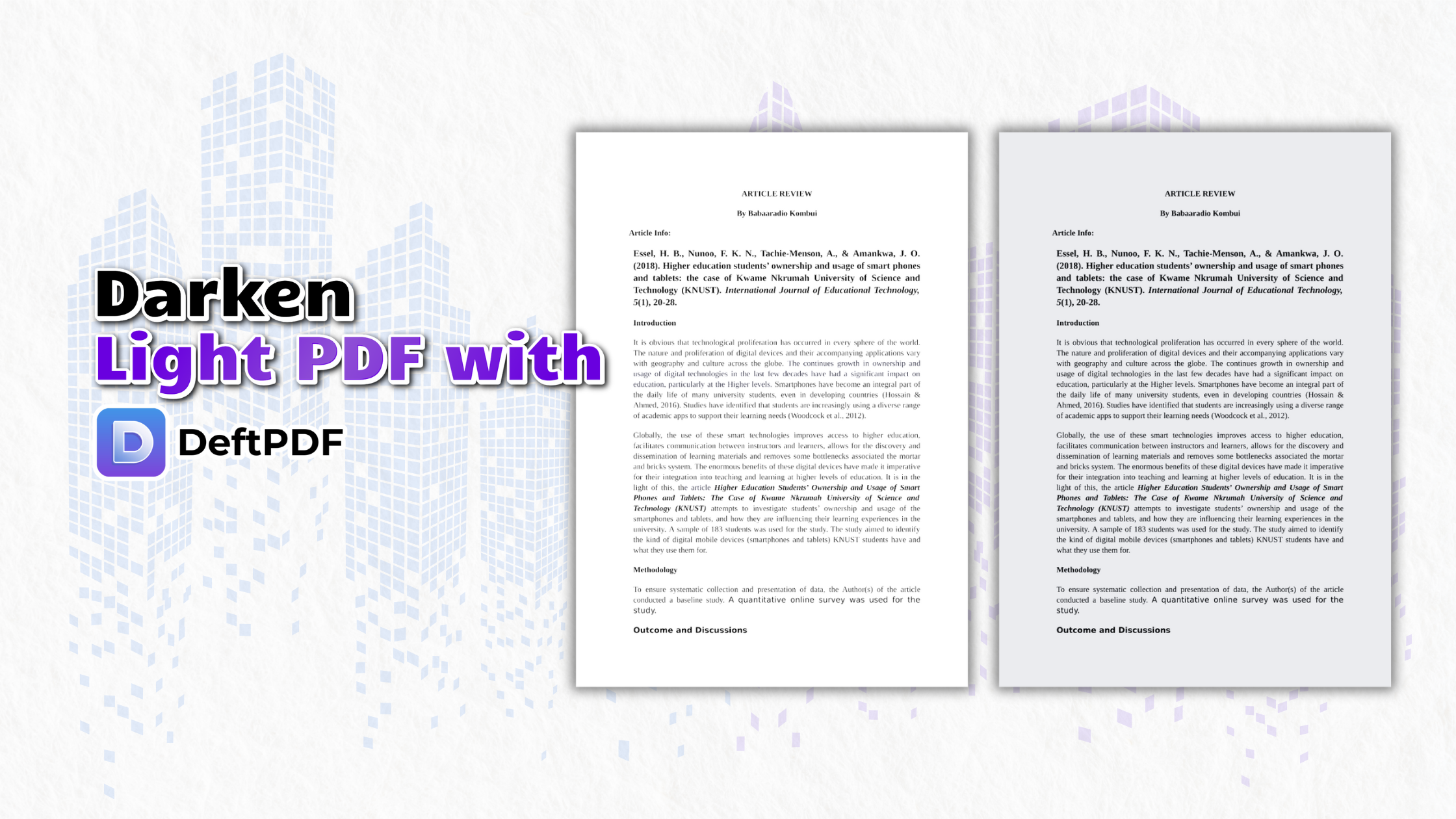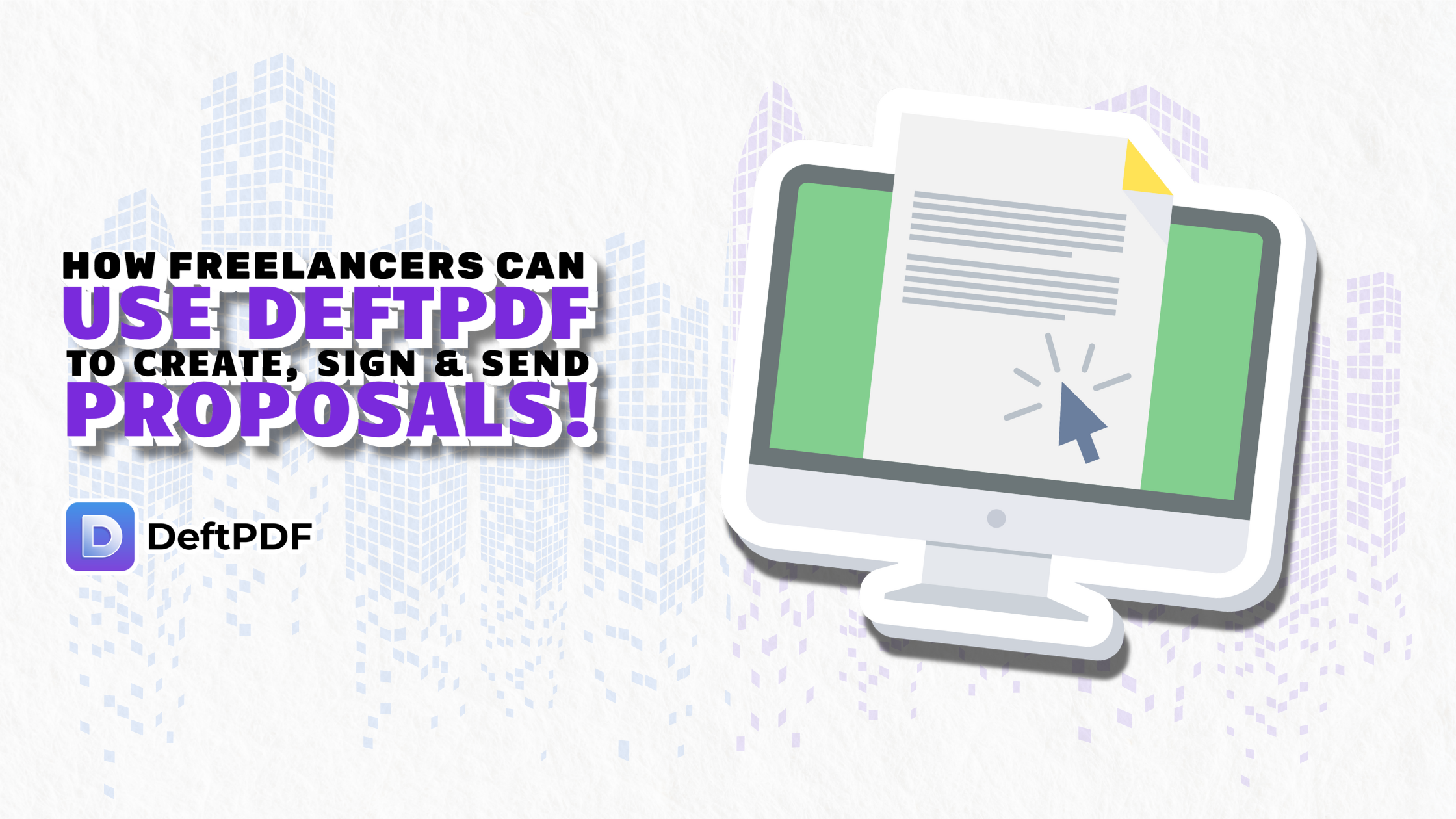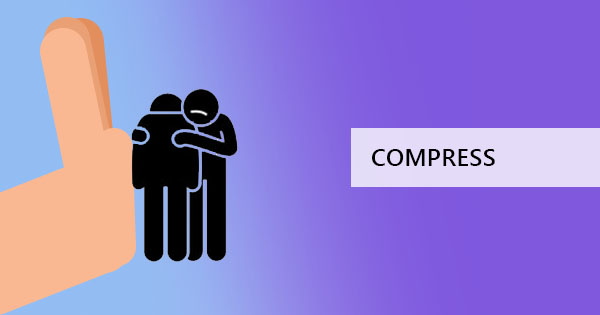
It’s frustrating when you want to send a file via email but it can’t seem to fit transfer limits. More likely, when a file won’t fit emails it’s because the file contains too much content but if you only have a few pages and it still doesn’t fit, the most obvious culprit could be the images. Why does it become too big with images anyway? What’s the difference between text data and image data?

PDF files can contain various and multiple data, including fonts, images, media, texts, bookmarks, structural data, formatting, and even attachments. This composition makes the file complicated but not impossible to understand. It is a misconception though that the number of pages determines the size of the file as a whole because not all kinds of attachments are weighed the same. To produce certain digital output, the computer has to generate codes and recognize what it means to it. Just like languages, every code translates to an understanding and gives results based on the code. A variety of compositions means a variety of data.
What causes an increase?
A file or a page too big can have two common causes – one, fonts embedded or that come with it are quite large. A font that is embedded can be as large as 600kb. Two, high-resolution images or media are inserted on a page of the document.
When a PDF file has been laid out with artistic font, the PDF file displays the same font no matter where it is viewed. Readers don’t need to install the font because it’s automatically included in its data. This makes PDF files so popular with users but also makes the file higher than a normal .txt file.
When a PDF file has high-resolution colored images, the file size also increases. Unlike text who has small data for one character, images have data for every pixel and dot on the file. Imagine having to contain data per dot instead of keeping data for a character. It will take a ton of data to conclude one page. To understand this further, let’s compare having two visually similar files but one is a jpeg file and the other is a .txt file. Both look similar on-screen with only black and white text that says “hello.”
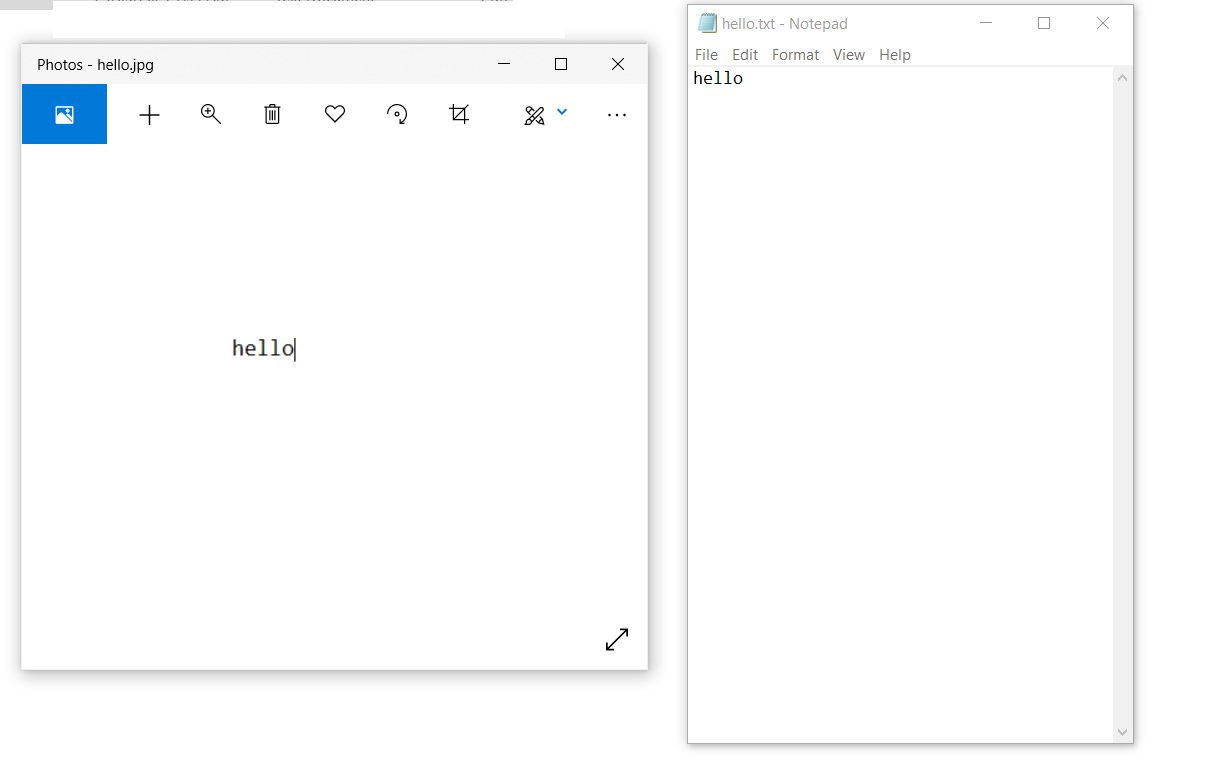
Though both have the same content in a human’s eye, the computer will read it differently because of its file format. The computer will read the .txt file’s text as characters while it sees the jpeg as dots. The .txt file will have 1 data per 1 character while the jpeg file will have tons of pixel dots per character, which has 1 data per dot. To prove this point, let’s compare the file sizes in our example. Notice how the .txt file is only 1kb while the jpeg file is 2kb?

Why do images make a PDF bigger?
With the latest technologies, mobile phones, iPads and digital cameras can now capture images closer to professional quality. This simply means that the resolution high therefore there are more pixels stored in one image. Without any conversion or alteration, images inserted on a PDF will result in higher file size. More likely, these images are excessively high in resolution even if a PDF file will only need a fraction of it. Scanned images are also one of the examples that contain high resolution. Scanners are generally set with high DPI to produce high-quality images on your screen. You can change the resolutions of scanned documents by changing them in your scanner settings before you scan an image.
If it’s not the resolution, it’s the image compression. Some images can contain algorithms optimized for speed, therefore, adding data to the image. Image compression is required for cameras that need to generate images quickly but don’t worry, these types of images can still be compressed with the right tools.

Does splitting files and compressing them reduce file size?
Reducing file size by compressing is one effective way however, not all PDF files can be reduced drastically. If the file is already in grayscale, has small images or has no images at all, then compressing software will only have data to compress which means it will only delete duplicates and reorganize the data to make it efficient and will only reduce it by a small fraction. However, if your file is filled with images and has unstructured data, significant size can be reduced.
Another usual solution done by users is to split PDF files. This is also the easiest solution as well since you can always extract pages from your PDF using your print to PDF feature available on every computer. Splitting is indeed effective however, a user will also need to know how big each page is in order to create a PDF within the email’s size range.
How to make a PDF smaller?
The simple solution of compressing a PDF file to make it smaller or reduce its file size can easily be done here at DeftPDF. This free online solution will lessen the data of your document by changing the image quality, making the image resolution smaller and turning it into grayscale, and adapting it with compression speed. With this tool, you can control these four factors that make a PDF huge just by selecting your preferences on “more options.” Here is how to use the tool:
Step one: Go to DeftPDF.com and select COMPRESS from all tools
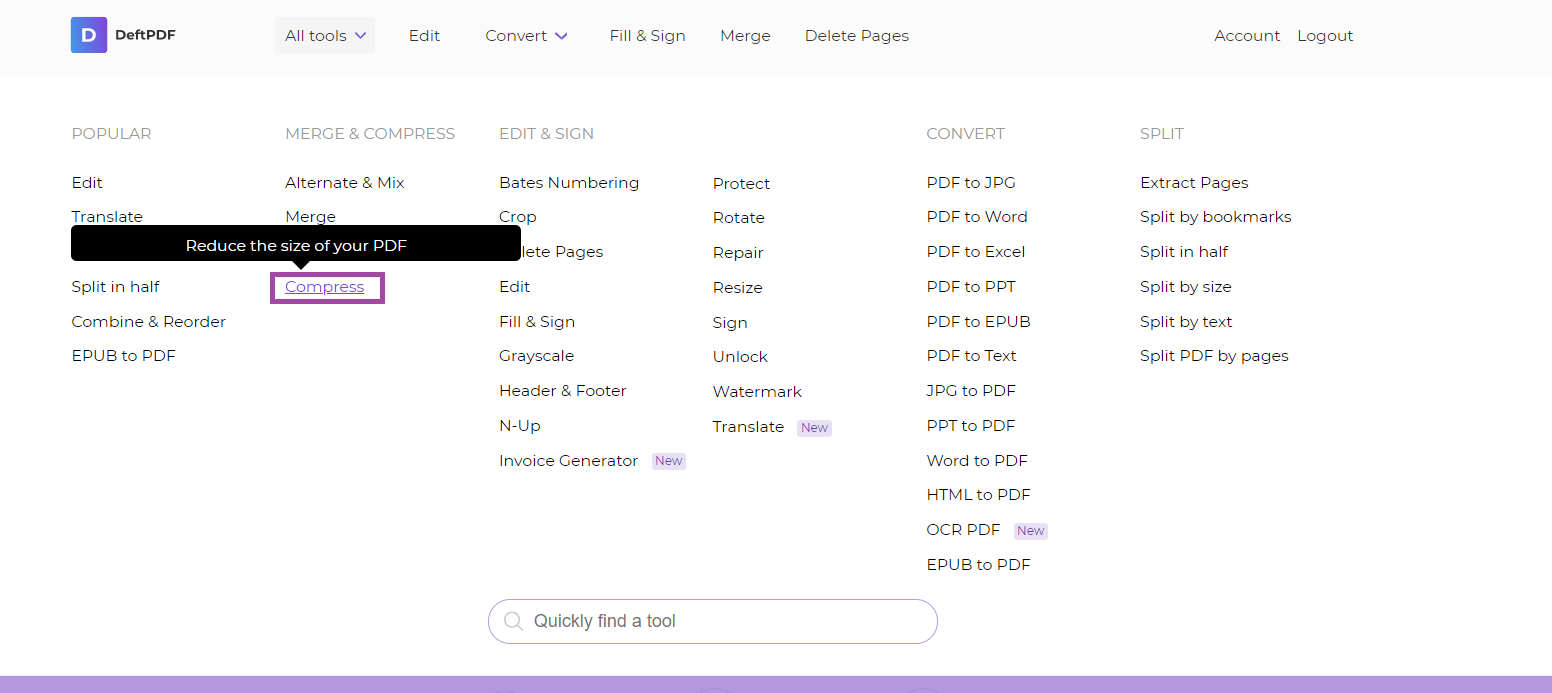
Step two: On the tool, upload your PDF file
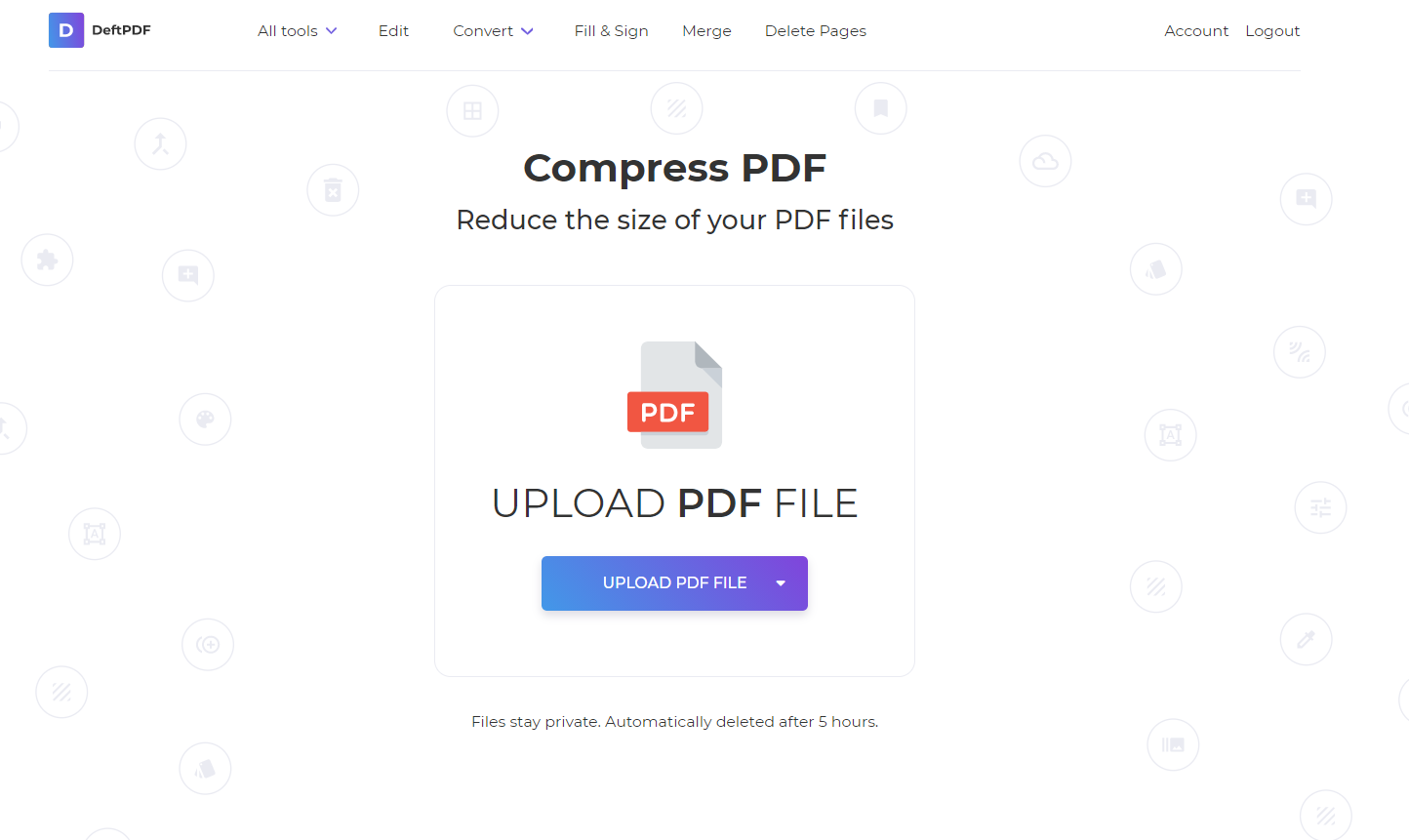
Step three: Click more options and select the necessary changes you desire
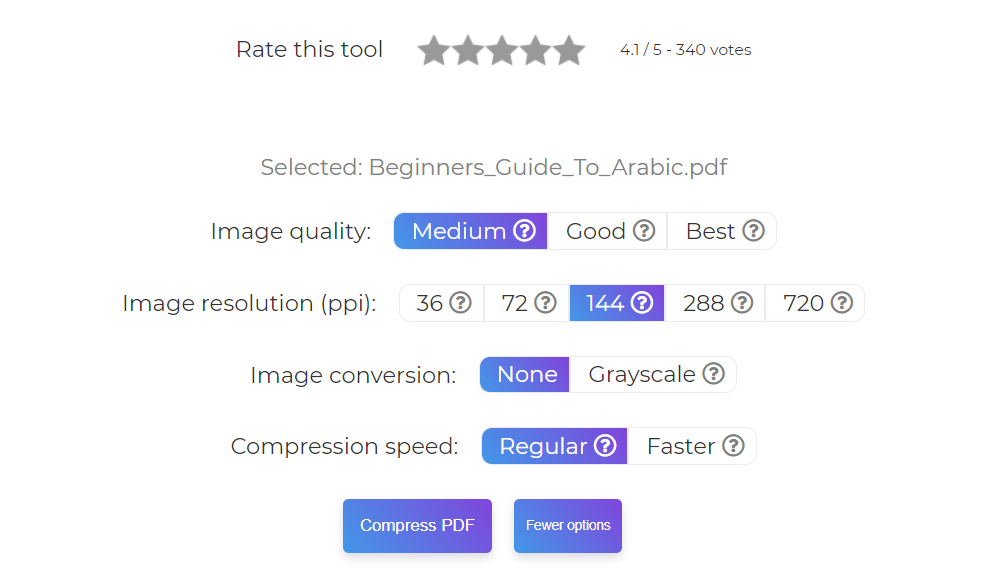
Step four: Click COMPRESS PDF at the bottom (which is the purple button) and click download after processing to save your PDF on your computer.
How to split PDF online?
Splitting PDF with your print to PDF function is easy but it’s easier to use DeftPDF if you have a hundred pages to split. Here’s a way to divide those pages easily in groups or multiple times in one click:
Step one: Go to DeftPDF.com and select SPLIT BY SIZE
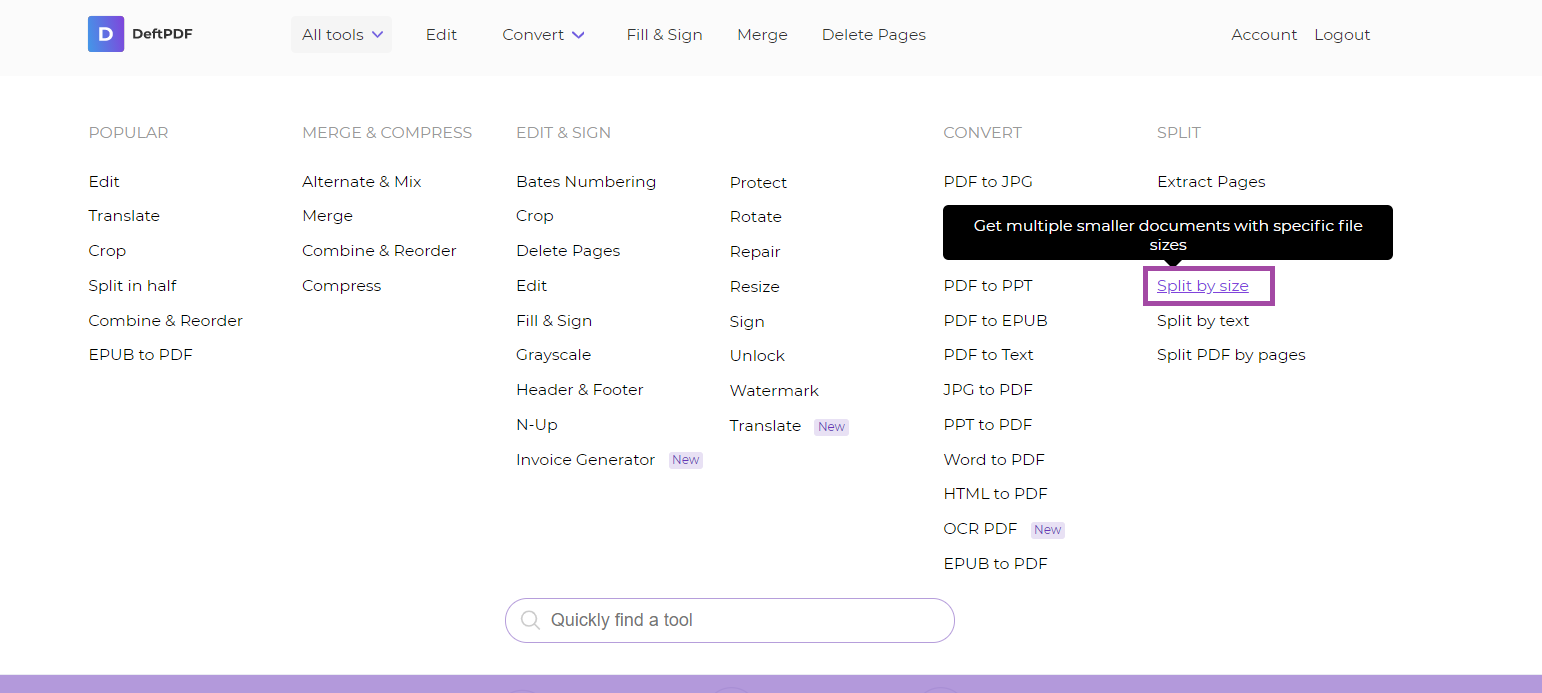
Step two: Upload your PDF file. Indicate the size limit. By encoding this, the output will produce a PDF that will group pages according to the size limit.
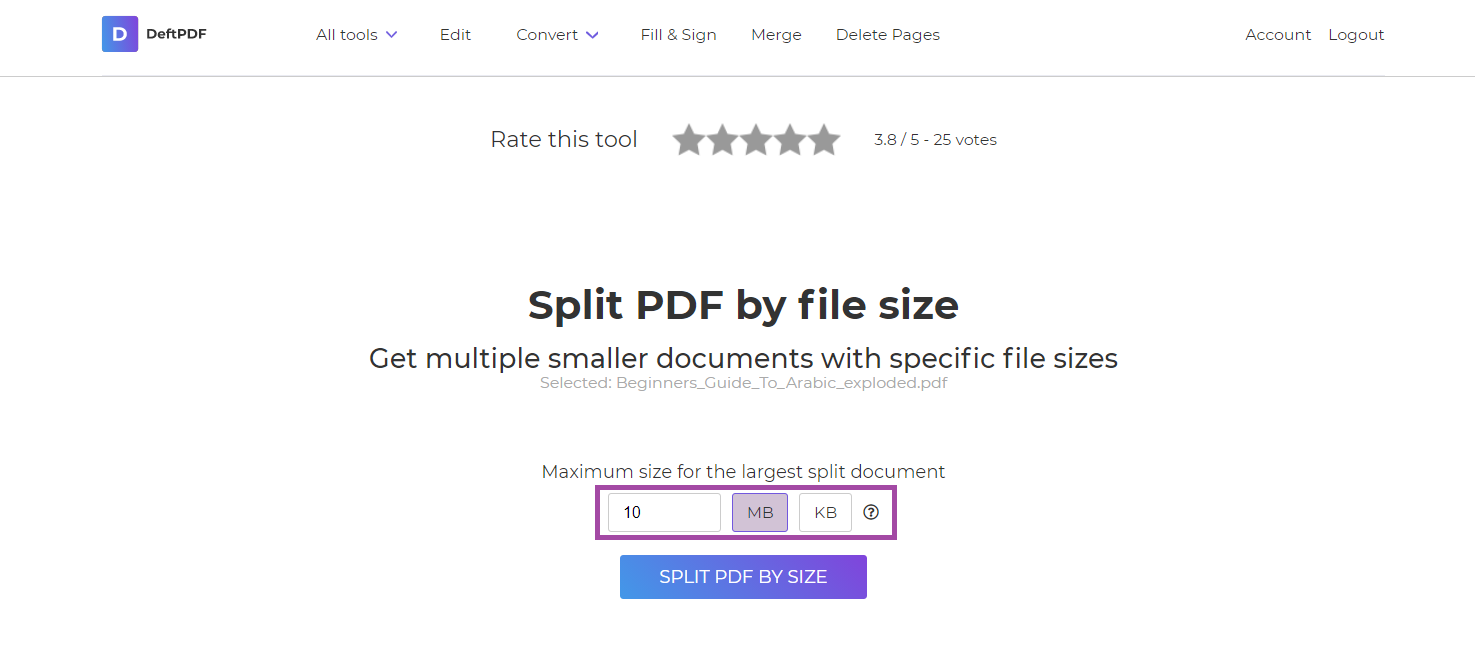
Step three: Click SPLIT PDF BY SIZE then download your new file after processing.
Fun fact: You can split your PDF from our tools based on bookmarks, size, pages, by text, or even in half.
